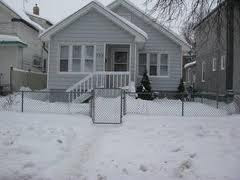Canadians Struggling To Save
 Canadians Struggling To Save
Canadians Struggling To Save
Many Canadians are finding themselves caught between the struggle to save money and repay their debts, says a survey from TD Bank. And with interest rates expected to rise this summer, clearing debts probably won't get any easier. In the report, 38 per cent of Canadians surveyed said they had no savings at all. "I think it's worrisome," said Carrie Russell, senior vice-president of retail banking at TD Canada Trust (TSX:TD). "The reality is that we are all going to come into unexpected expenses from time to time, be it a car or health or a job loss and this can really derail you and your family if you have no cushion behind you," Russell said from Toronto. Russell said the major factor preventing Canadians from saving is that they are using disposable income to pay down debt, whether it be credit cards, car loans or mortgages. She recommends a cushion of three to six months of income saved to get through unexpected financial shocks. One-third of Canadians who responded to the recent online survey also said they didn't have enough money to cover living expenses like rent or food bills. The survey found that 54 per cent of the 1,003 people who took part in the survey said it was a real struggle or impossible to save.



